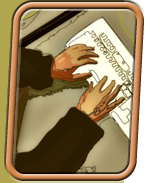|
|
||||||
|
|
|
|
||||
|
|
|
|
|
|
||
|
|
||||||
|
|
|
|
||||
|
|
|
|
||||
|
|
|
 |
|
|
|
|
|
|
|
|
|
|
|
|
|
|
|
|
|
|
|
|
|
|
|
|
|
Where the Barbarians First Landed TIME Asia The wheels of diplomacy are greased by many a lubricant: embassy parties, cocktails, rounds of golf. But when commercial treaty negotiations between Townsend Harris, the United States' first consul in Japan, and the Tokugawa shogunate bogged down in 1857, a rather more personal angle did the trick: a maid- servant named Okichi for the lonely American. Barbarian comforted, deal clinched. That's one version of the tale of Harris and Okichi. Here's another: Okichi was a 17-year-old geisha Harris chose after seeing her leave a bathhouse. There are still other versions--and it's unclear if the pair were ever actually intimate--but they all have one feature in common: the setting is Shimoda, the sleepy burg at the southeast tip of the Izu Peninsula that housed the first U.S. consulate in Japan and is indelibly associated with the "opening" of the Land of the Rising Sun. The leafy hamlet is crammed with history-book buildings and memorials, and it retains a free and easy atmosphere befitting the first place in Japan where Americans and Japanese were permitted to mingle after centuries of Japanese isolation. Gyokusenji, the Buddhist temple that in 1856 became the American consulate, is a good place to start a Shimoda excursion. Harris lived in the temple until 1857, and inside visitors will find drinking glasses, pipes and other belongings of the consul's, as well as somewhat ghastly life-size figurines of Harris and Okichi. There's also a passage from Harris's diary, engraved on a large outdoor marker, in which the New Yorker waxes severe: "At half past two p.m. of this day (Sept. 4, 1856) I hoist the first consular flag ever seen in this empire," he begins. "Grave reflections. Ominous of change. Undoubted beginning of end. Query--if for real good of Japan?" I had the same query. Japan had, after all, shuttered itself. Surely not everyone wanted to "open" the country following the appearance of U.S. Commodore Matthew Perry's "black ships" off Uraga in 1853? "Well," said sprightly temple worker Kayoko Murakami, "people realized that they couldn't continue sakoku," or national seclusion. If not for the U.S. and Harris, she told me, "Japan could be like North Korea" today. Now there's a sobering thought. It helped to explain the Perry and Harris-mania that grips the town. By that I mean the "black ship" manholes in the streets, the Perry Aqua Dome at the Shimoda Aquarium and the dramatization of the Harris and Okichi story in tourist literature. The place even celebrates a black ship festival every May. Town officials are busily planning for 2004 celebrations of the 150th anniversary of Perry's landing in Shimoda Bay and there is also an annual ceremony at Ryosenji temple recreating the May 25, 1854 treaty opening Shimoda and the northern city of Hakodate to U.S. vessels. Inside the main hall is a recent photo of U.S. embassy representatives in period costume and Wolfman Jack-like hair cuts somberly inking a mock-up treaty. Okichi's specter lurks throughout Shimoda, and you can sense her troubled soul best at Anchokuro, the restaurant she ran after Harris left for America, and at Hofukuji, where her bones lay in repose. The consul gone and reconciliation with her former lover Tsurumatsu failed, Okichi drowned herself like an Asian Ophelia in a river near Shimoda in 1892. "She persevered for Japan," said bus driver Kaoru Okabe. "But it must have been tough for her." Those wishing to see Okichi's grave, Gyokusenji or any other Shimoda site will not be alone. Groups of middle-aged tourists pack Shimoda, belying the town's, and Japan's, current economic slump. You won't see any orange-haired punk city kids, though; little Shimoda feels about as removed from the Babylonian crush of Tokyo as one can get. And yet, perhaps because of its special history, Shimoda is no Japanese hick town. There are English and Portuguese buttons on the atms. No one yelled "gaijin!" at me as I walked down the streets. There are funky bars like JaJah and Cheshire Cat that play soul and jazz. Indeed, the mongrel past is a source of pride for some inhabitants. "I'm happy I live in the town where (foreign) culture came to Japan," said Jiro Shoda, who was tending bar at the Cat as Miles Davis blew softly over the speakers. War? Trade friction? Racial tension on Okinawa? In Shimoda, the irritants in the modern U.S.-Japan relationship seem far away--and that's the idea. "Sometimes the relations between the U.S. and Japan are influenced by emotional feelings and economics," said Ryosenji priest Daiei Matsui. "Shimoda should maintain the human relationship based on cultural understanding." Heady stuff for countries whose common history includes a pair of atomic bombs. But as the bartender testifies, Shimoda represents an altogether different kind of ground zero.
|